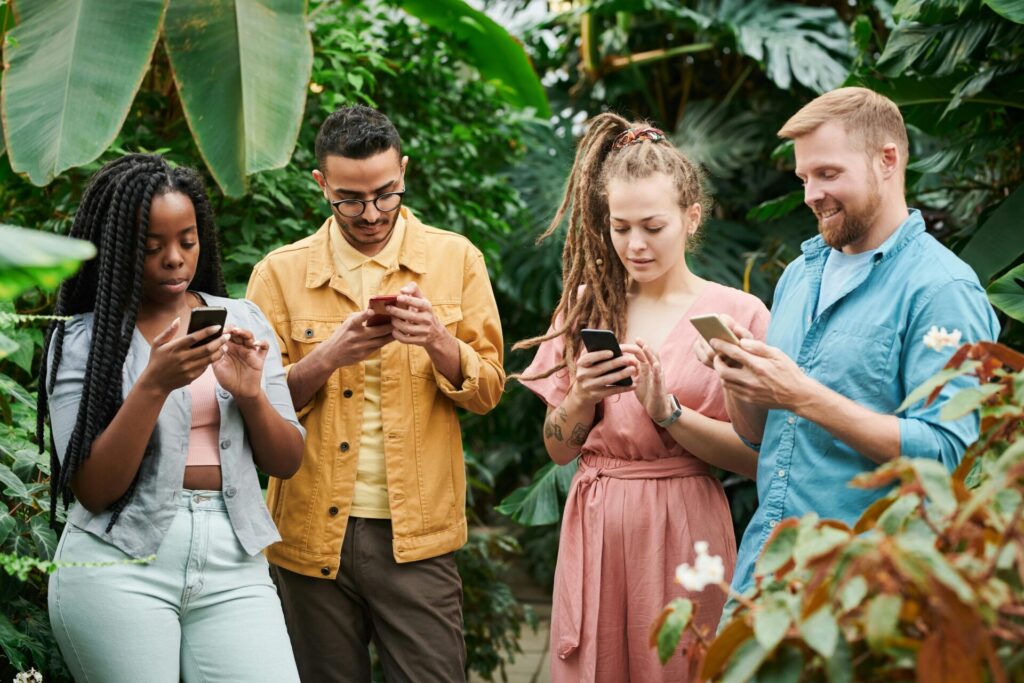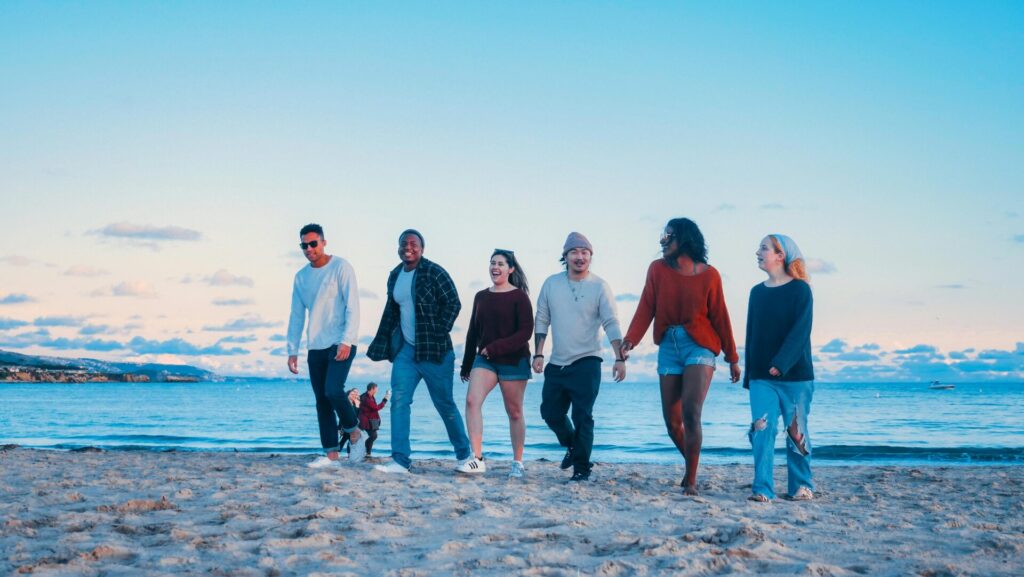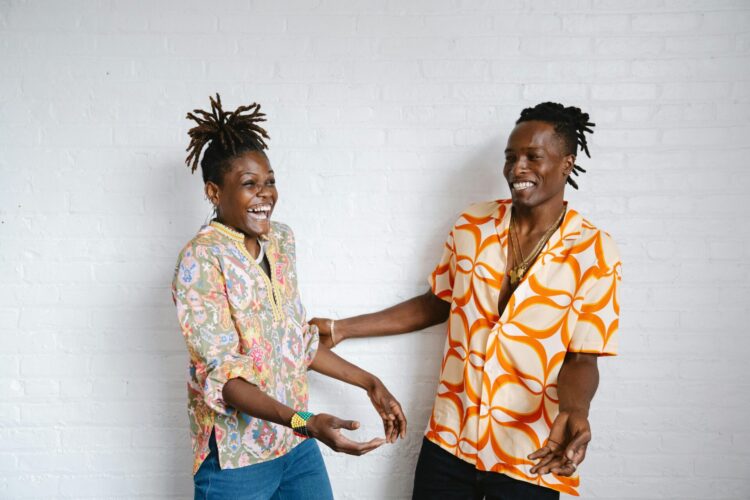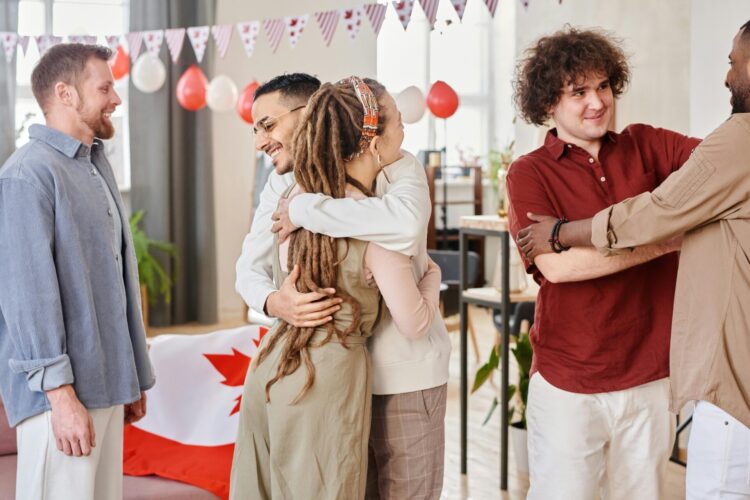
Social media can affect all areas of your life, including your relationships with partners, friends, and family members.
These effects can be both harmful and helpful. Although social media can worsen certain relationship problems in some cases, it can also be beneficial when used wisely.
Using social media in a positive way can benefit your relationships with others. Setting healthy boundaries around social media and relationships is a crucial step.
Negative effects of social media on relationships
Social media can have a negative effect on your relationships in some cases.
Social media can perpetuate jealousy
Jealousy is a natural, common emotion but when left unchecked, jealousy can damage relationships.
Jealousy is often a reflection of our own insecurities. It often has us making up improbable scenarios in our heads — scenarios that might fuel our anger and insecurity.
When you’re feeling insecure, you might see a photograph of your partner with a friend and find yourself wondering if they’re having an affair. Or, you might feel like you’re not attractive or wealthy enough, so you scroll through your partner’s Instagram likes to “investigate” whether they’re more attracted to other people.
It’s easy to project those difficult emotions onto whatever we see on social media. Your actions might find “evidence” to justify your jealousy, even if your partner is totally faithful.
If you’re not managing jealousy in a healthy way, social media can perpetuate it.
Social media can decrease the quality time you spend with your loved ones
Has your partner ever whipped out their phone and started scrolling when you’re meant to be on a date? Have you?
A 2018 research paper found that increased social media use can have a negative effect on the amount of quality time people spend with their loved ones. The study was self-reporting and more research is needed.
Because social media is designed to be intriguing and easy to scroll, it can be hard to put down your phone and focus on your partner (or friend), aka “partner phubbing.” As a result, it can take up a lot of time and attention.
Without even realizing it, you might focus more on your phone instead of connecting with your loved ones.
According to research from 2021, partner phubbing, or phubbing, is negatively associated with relationship satisfaction. It can lead to feelings of isolation, jealousy, and less intimacy.
Social media can set unrealistic relationship expectations
It’s said that comparison is the thief of joy.
Yet we all tend to compare ourselves to others, especially through social media. You might look at the #RelationshipGoals posts on Instagram and feel like your relationship is lacking, even if you usually feel happy with it.
A 2018 study looked at social media and relationship satisfaction. Those who felt social media played a big role in their lives tended to find their romantic relationships less satisfying.
Increased Instagram usage can lead to a decrease in relationship satisfaction and an increase in conflict and negative outcomes, according to a 2021 study. This dissatisfaction and conflict can then fuel an excessive use of Instagram.
We tend to post the highlights of our relationships on social media (gifts from our partners, couples’ getaways, and grand romantic gestures). Compared to this, your day-to-day life with your partner might seem dull.
Even if you don’t tend to value expensive gifts or fancy vacations, you might worry that your relationship is inadequate or that your partner feels unloved because your relationship isn’t like the ones you see online.
Positive effects of social media on relationships
Although we tend to focus on the negative aspects of social media, it can also have positive effects on our relationships.
Social media can help you meet new people
Social media can help you connect with new people who you might have not otherwise met. Forums, dating apps, and Facebook groups all enable you to meet people who share your interests. These might materialize as romantic or platonic relationships.
These relationships could be especially important for marginalized people.
Research from 2021 found that social media can help LGBTQIA+ youths find emotional and social support, largely because social media can help them connect with other members of their community.

Social media can help you stay connected
In addition to helping you form new relationships, social media can help you maintain existing relationships. It’s a convenient way to stay updated with your friends’ and family members’ lives.
A 2020 study hypothesized that social media may help long-distance family members stay connected despite the distance. But more research is needed.
But remember that seeing someone’s updates isn’t the same as communicating with them. If you find yourself needing company or missing a friend, don’t just lurk on their page. Try reaching out directly.
Social media can help you spend quality time with your loved ones
Social media can negatively affect the quality time you spend with loved ones. But when used wisely, social media might offer another way to connect with the people you love.
For example, an old-school friend might post about the latest episode of your favorite show, or your cousin might mention starting a hobby you enjoy. This is a great jumping-off point for a discussion or reconnection.
Social media can also give you ideas on creative ways to spend time with your loved ones. You might see a TikTok about a local exercise class for couples and decide to try it with your partner, or Instagram might provide some exciting date ideas.

Signs that social media is affecting your relationship
The following signs suggest that social media could be harming your relationship:
- You feel disconnected from your partner.
- You find yourself resenting social media, phones, or technology in general.
- You check your partner’s social media obsessively for signs of cheating or dissatisfaction with your relationship.
- You find yourself wanting to replicate couples you see online.
- You compare yourself and your loved ones to those you see online.
- You feel inadequate or insecure when you look at other relationships.
- You find yourself scrolling social media when you’re meant to be spending quality time with your loved one.
Tips to manage social media use in relationships
Consider trying these tips to minimize or avoid the negative effects of social media on your relationships.
Use social media in moderation
Social media can take up a lot of your time, attention, and energy. This can be dangerous not only for your relationships but for your own mental health.
Try to avoid excessive social media use and use it in moderation. This might take time to get used to, but committing to some phone-free time can be very rewarding.
For example, you might try to:
- have phone-free lunches or dinners with your loved ones
- make your bedroom a laptop- and phone-free zone
- create a family morning routine that doesn’t involve social media
- take a social media break
Set healthy boundaries
What is your partner OK with you posting on social media? What about your friends?
Consider these tips:
- checking in with your loved ones about their social media boundaries
- asking before you post a photo of your friends on Instagram
- talking with your partner before you update your relationship status on Facebook
Likewise, you deserve to have your own social media boundaries respected. Consider telling your friends upfront if you don’t want them to tag you, share pictures of you online, or use social media while you’re spending time together.
Be realistic
If you often compare yourself to people you see on social media, you might find it helpful to remember that nobody’s social media is a perfect representation of their life.
All of us tend to share important updates and positive news on social media, while seldom sharing mundane happenings or events we don’t feel ready to talk about.
Try to avoid comparing your day-to-day life to someone else’s highlight reel. If you find yourself feeling inadequate or dissatisfied after scrolling Instagram, consider taking a pause and checking in with yourself.
Let's Recap
References
Ferguson, S. (2022, August 8). How Social Media Affects Relationships. Retrieved from https://psychcentral.com/relationships/social-medias-impact-on-relationships#signs


